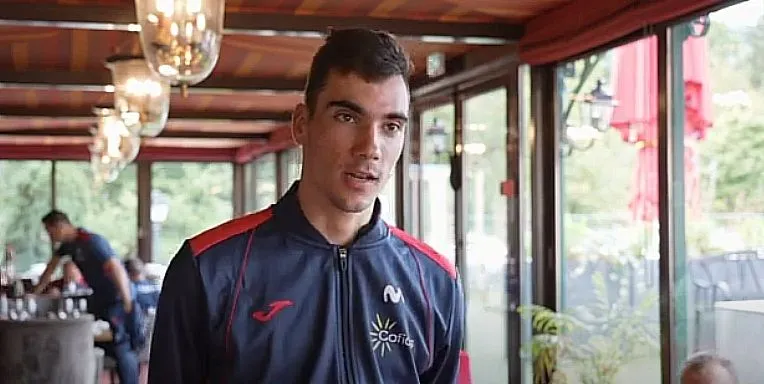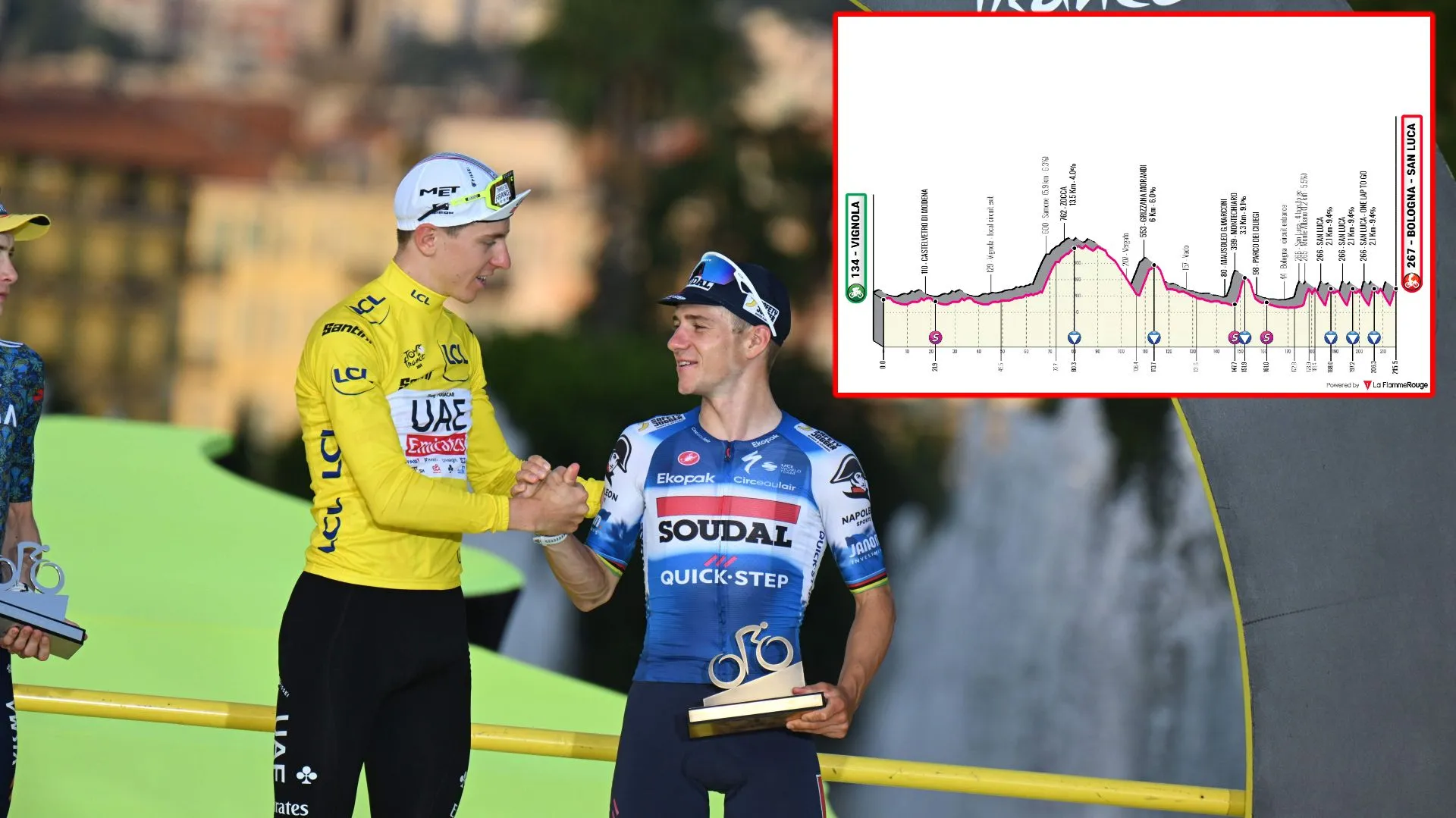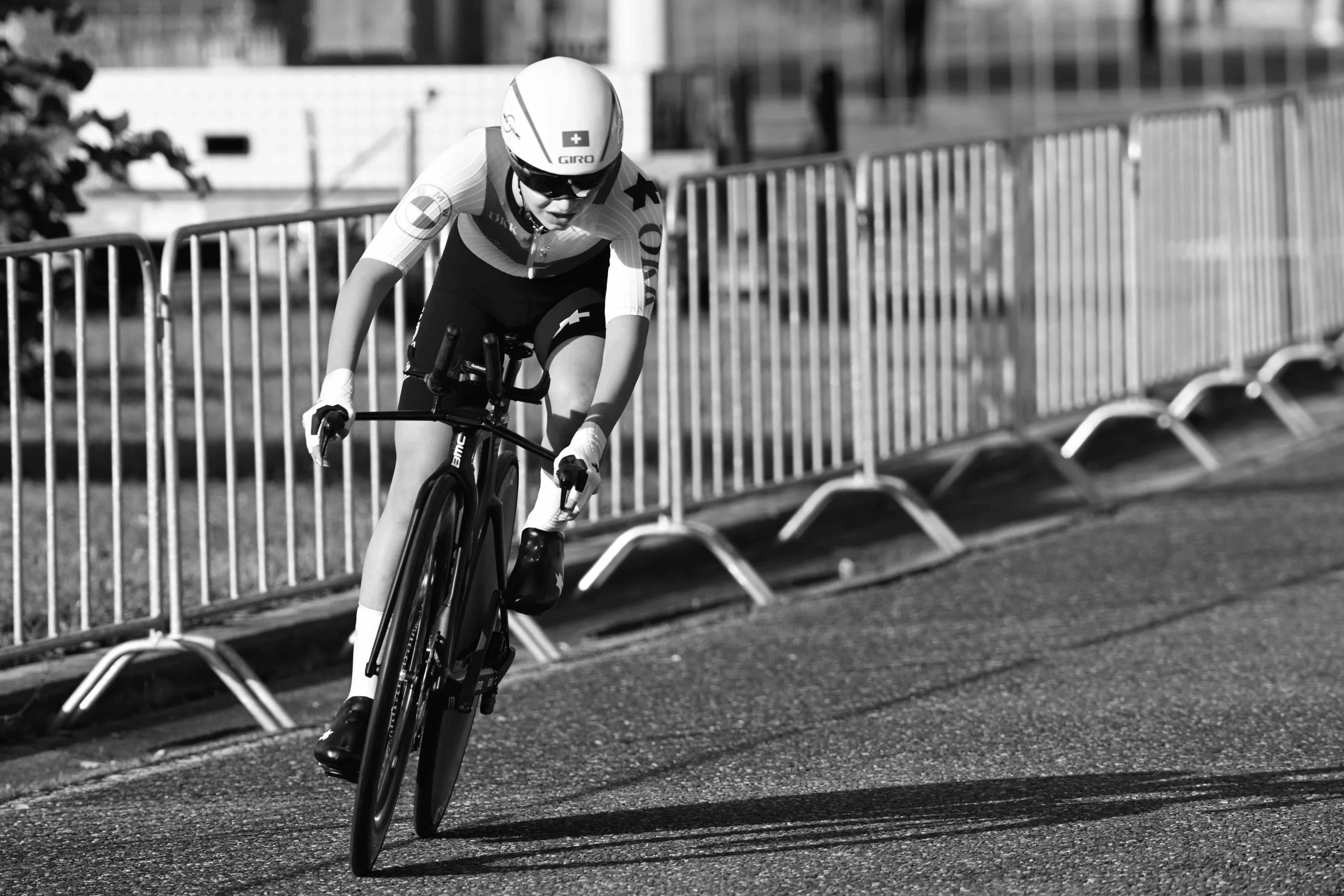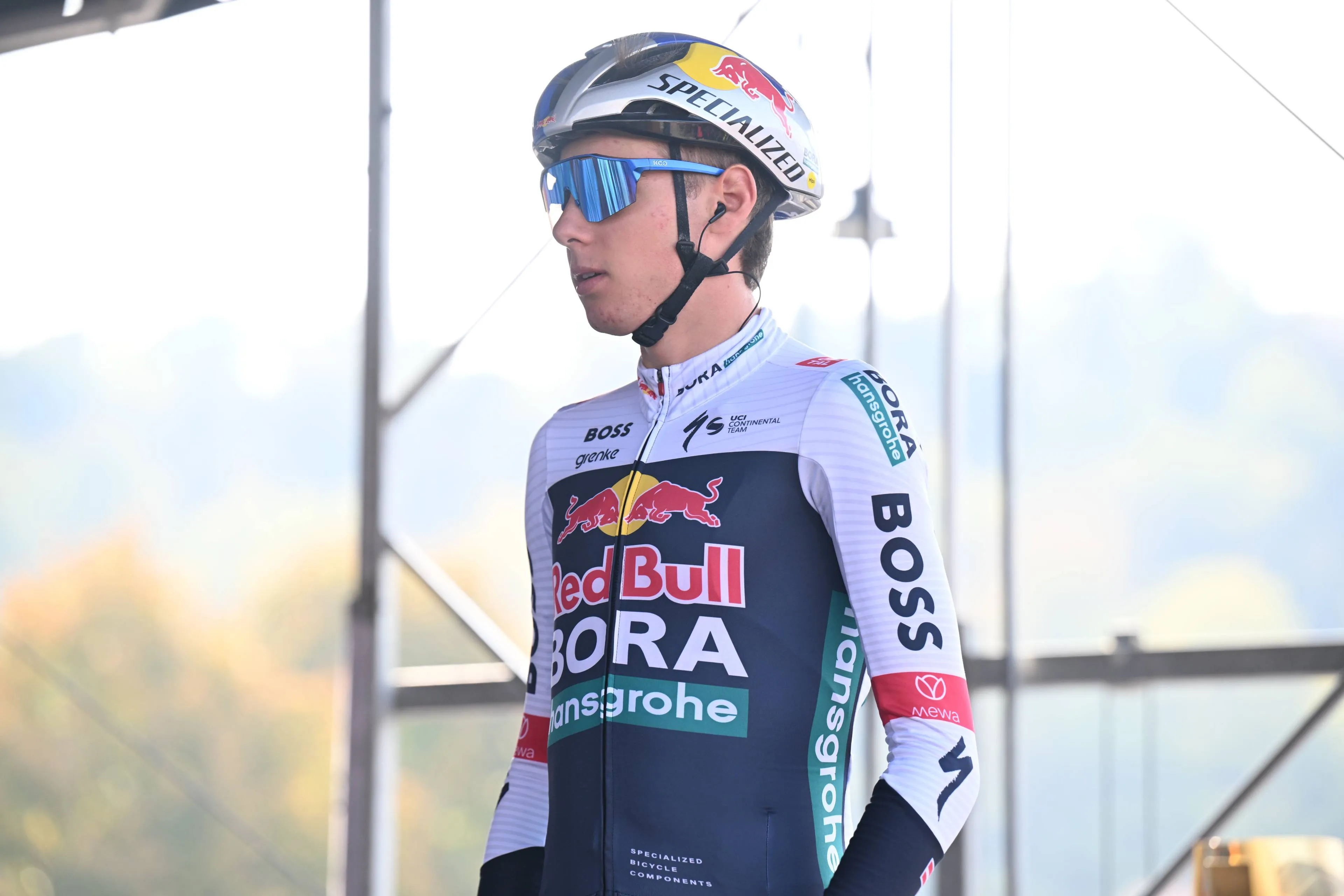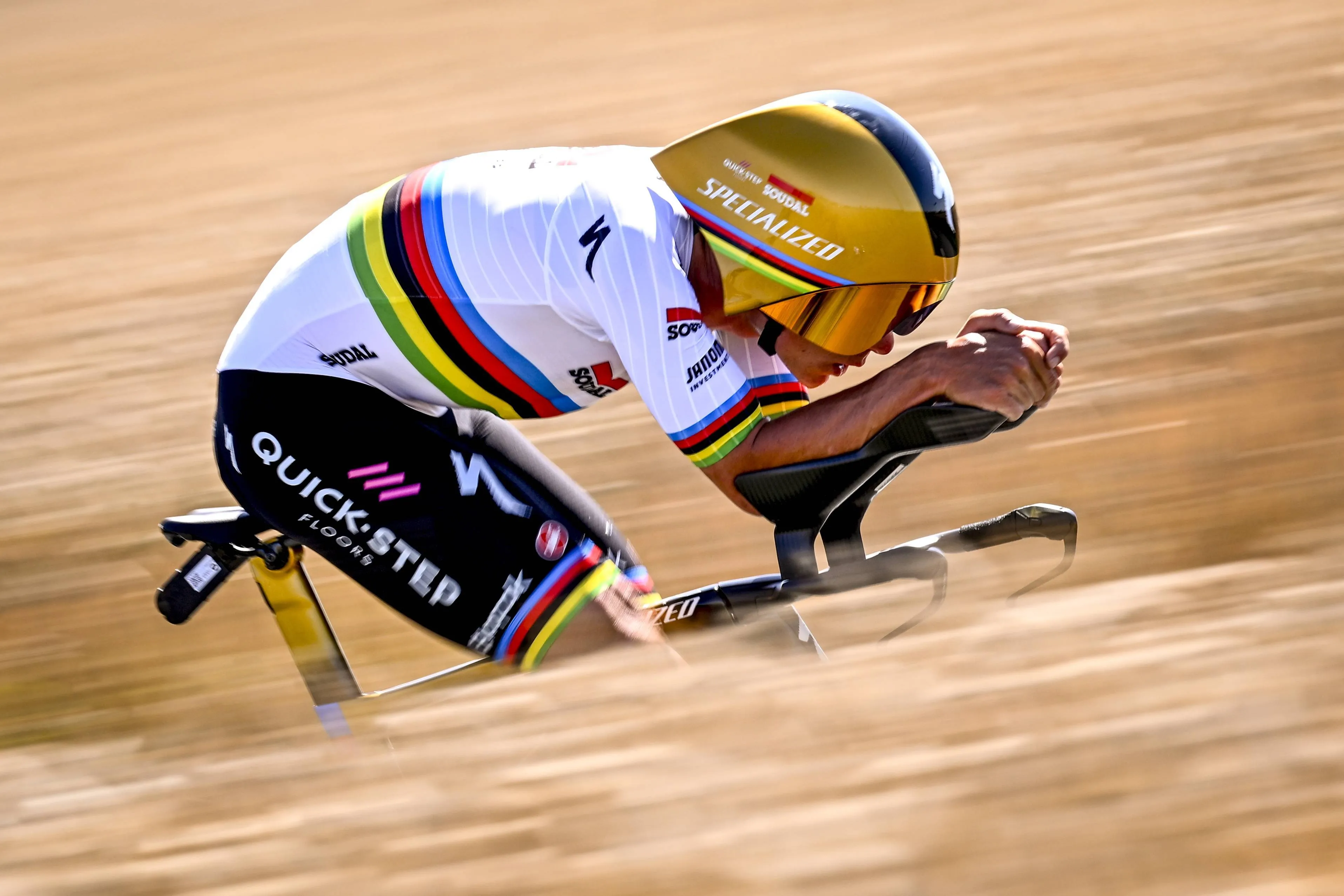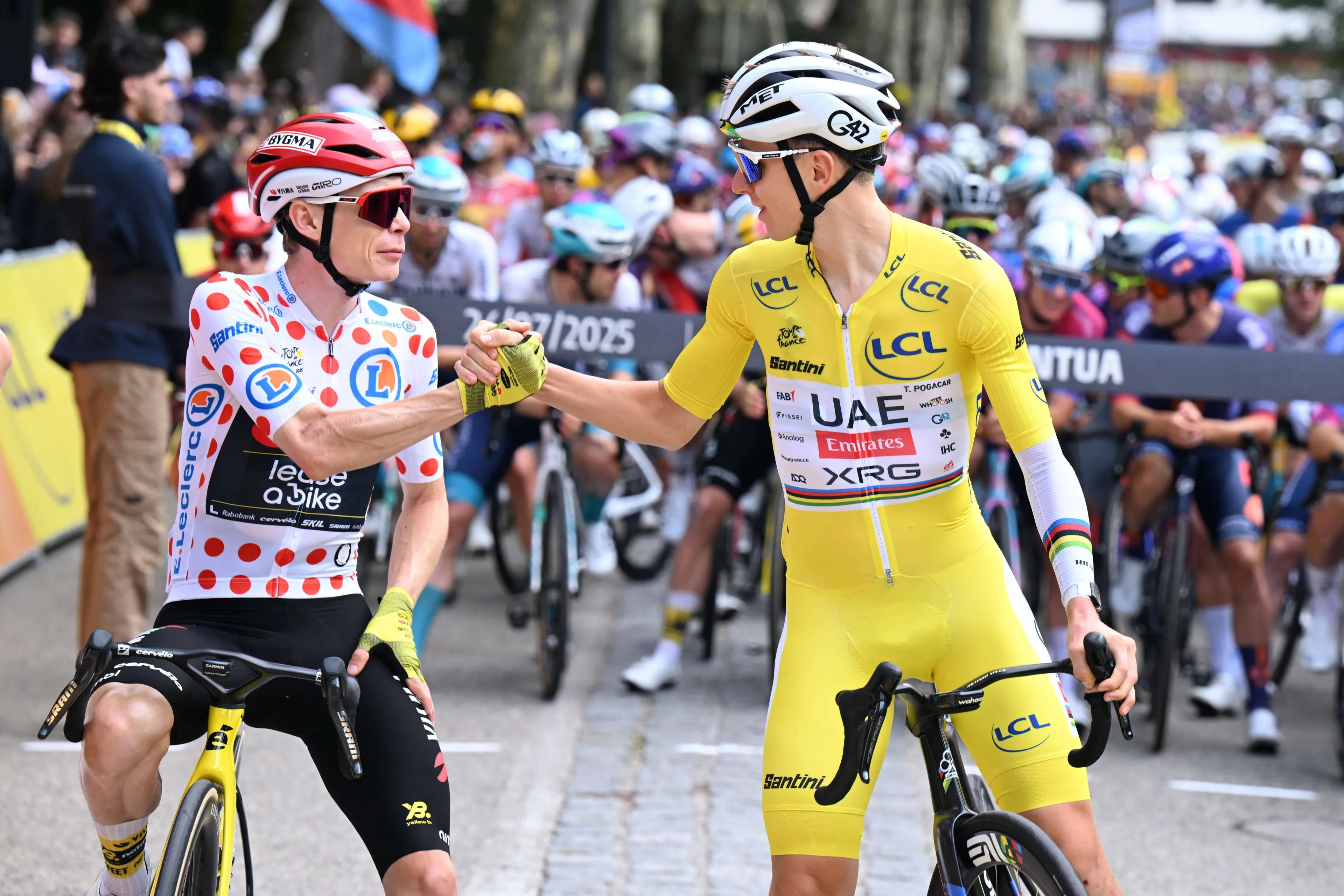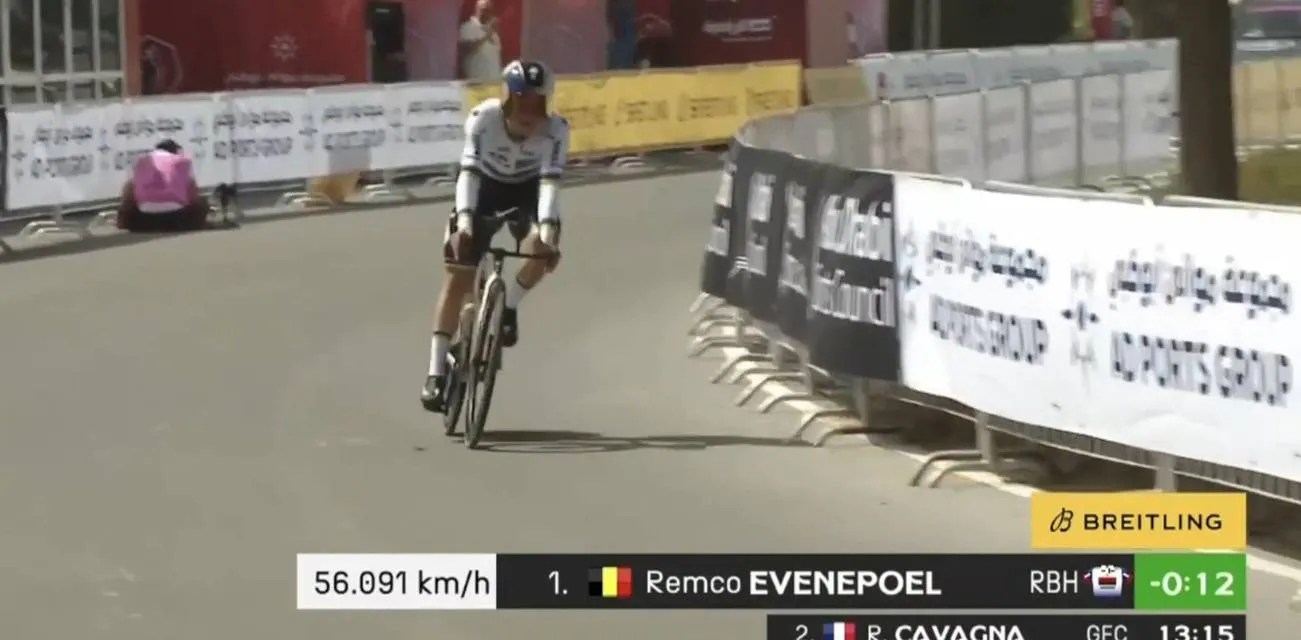Tiesj Benoot argues Muriel Furrer's crash is the ultimate reason for mandatory race radios: "Maybe she could have asked for help"
CyclingFriday, 04 October 2024 at 12:30

Riders, team staff and fans alike almost unanimously agree on one thing: there needs to be an improvement in safety within cycling and it is the UCI's responsibility to ensure this. Race radios and GPS tracking are the most necessary changed according to most in terms of safety at this moment and Tiesj Benoot very strongly supports the idea of mandatory race radios after what has happened at the World Championships.
Many solutions though exist, including crash warnings in the riders' GPS systems that can be relayed to the teams or organizations. "I have seen for myself that it works well. Once we had parked our bikes against a wall when we went for a coffee. One of those bikes fell over and an alarm signal was immediately sent," Benoot told Het Laatste Nieuws. "Technology cannot be the problem. With everything that exists, it should be possible to locate a person who has fallen. We already ride with a transponder under the saddle that measures the time differences. It seems to me only a small step to also track someone's exact location with that."
Read also
Benoot argues something that is often used in the elite peloton; but it is known that under-23 and junior riders did not have the transponder system working at the worlds, at least in a fully functional form. The fact that it took around 1:30 hours - according to Blick - to find the Swiss rider after she fell into an off-road area that was forested is evidence that there was simply no information as to where she was. At the World Championships race radios are not allowed, the reason being for the sake of 'more exciting racing'.
"'I understand that. But some things are more important. If spectacle always takes priority, we are working on the Roman Games," the Team Visma | Lease a Bike rider adds. "If the UCI is afraid that data is being passed on, they should develop their own, neutral system, then they can monitor it themselves. If I see how much we pay to the UCI, then they have enough money".
Read also
But Benoot does not believe in the first place that racing without radios makes it more exciting, but instead puts the riders in a situation of chaos: "I have to be honest that I used to think that you could race more freely without earphones and that you had to think more tactically yourself, but that is not true. Without earphones, we are often so poorly informed about the race situation that we simply do not know what to do."
"That has nothing to do with tactics and does not necessarily result in better racing. And vice versa: are the one-day races with earphones so boring? I think that many classics are worth watching. I think spectacle is a hollow argument from the UCI". The prime case seems to be that of the 2021 Olympic Games in Tokyo where amateur rider Anna Kiesenhofer won the elite women's road race, because no-one in the peloton was aware of her presence and the main favourites did not know they were racing for second place.
"In the case of that girl (Furrer, ed.) maybe she could have asked for help, or maybe a colleague could have reported that something had happened," the Belgian further argues, with safety now becoming the main argument for it's use. "Now none of that was possible. Aren't those enough reasons to always use earphones? For me it is simple: what happened in Zurich is a very special case. But if you can save one life by allowing technology, then it is always worth it. Regardless of the disadvantages that may entail".
Read also
claps 1visitors 1
Just in
Popular news
Latest comments
- lame, but probably correctantipodeanpedalfan18-02-2026
- Van Gils rode like wanted to get crashed or way too over confident that he was going to overtake Jan before getting pinched. It was obvious were Jan was going/had to go and MVG had the whole road to give an inch so he would have a chance to overtake on the rightjad2918-02-2026
- Double book this showing with the Melania documentary and you might get 100 people to see it...total !frieders318-02-2026
- Simple solution...stay off the barriers since you might get closed out ! Christen's sprint was legal as he was trying to get into the slipstream of Pidcock.frieders318-02-2026
- I believe Remco now understands that he will have issues reaching the top step as long as Tadej is in the Tour, whiles he's a year junior to Tadej he has had his upper body rebuilt twice now from crashes over the last few years. I think he has a chance to win the Tour in a few more seasons, you can only prepare yourself as best you can and try. He said he needs to race some more one week stage races, he should, he can probably win them all. I also believe Remco should aim for another Vuelta if he comes out of the Tour in good form and maybe he should think about the Giro again for next season. This is potentially Tadej's fifth Tour win coming up this year, no one is going to derail that unless he falls off the bike or gets really sick.awp17-02-2026
- Not only will the great narcissist get his voice, but he'll benefit financially from this as well. Who says that cheating and lying your way to victory doesn't pay?
 santiagobenites17-02-2026
santiagobenites17-02-2026 - It'll make a good double feature with the Michael Jackson soft focus biopic.LumbarDeniro17-02-2026
- Yeah, whilst MVDP would never break a bone on the MTB... 😂Sexass17-02-2026
- I think he looses too much weight and that leads to his implosions, when he doesn't worry about it or can get it exactly were he wants, like 2024 tour, he is betterjad2917-02-2026
- King of ROAD cycling, because "Mathieu has no equal on the bike" Put Pogačar on a CX bike or a mountain bike and he'll break a few bones.
 Rafionain-Glas17-02-2026
Rafionain-Glas17-02-2026
Loading
Write a comment
